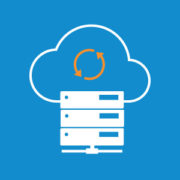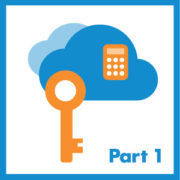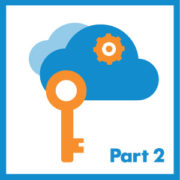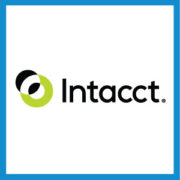How to Know When It’s Time to Kiss QuickBooks Goodbye
Many small to medium companies start with QuickBooks because of its easy accessibility and low entry point cost. However, as your company continues to grow, you will likely find yourself rapidly outgrowing its capabilities. Many companies deal with the manual aspects of outgrowing QuickBooks because they don’t realize there is are better cost-effective solutions. Below we will give you some things to consider when looking to switch and what the ROI will be once the switch is made.
How to know when it is time to consider a change
While QuickBooks is a great starting point there are many points in the journey that are signals that you are out growing this solution. As you are reading through the list, if you relate to one or more of the bullet points it is time to start considering a change in accounting solution.
- You or your team are having to create reports manually
- You are exporting data into Excel and manipulating the data to get reports instead of being able to run the reports out of your accounting system
- You are having trouble coding because of the extensive structure created in QuickBooks to track things separately
- You are manually entering or tagging many entries
- You are up late at night just trying to get the accounting work done
- Auditing is next to impossible because everything is done manually
- You cannot rely on some data as you suspect it contains errors
- You are tired of signing manual checks and storing paper documents in filing cabinets
What you should consider when changing
Once you have realized your company is ready for the next step in accounting solutions there are a few different aspects you should be considering. Below is a list of internal company considerations that will affect what you buy, how you buy it, and any additional software that will need to be integrated/purchased.
- Do you have an in-house finance team you want to grow or is the owner currently doing the finance work?
- What key metrics or indicators do you need to make business decisions and when is the ideal time to receive them?
- What reports do you currently produce? How long does it take it to produce them? If you could have more, what other reports would you want to have?
- Does your business currently have contracts?
- Can you currently see project profitability? If not, is being able to produce those financials important to growing your business?
- Can you currently predict resources and staffing levels?
ROI you can expect with a cloud ERP
Changing to a robust ERP can seem overwhelming from an implementation or upfront cost perspective. However, the return on investment is vast and long term can end up saving you money. How you ask?
- Accurate reporting – eliminates errors from manual processing and reporting
- Accelerate financial team productivity – automated processes take away clerical work and let your team focus on analyzing the data and making decisions needed to grow the business
- Employee engagement and retention elevates – when your employees are able to do work that matters such as strategy, planning, and analysis, they are happier and will stay longer
- Better numbers quicker – with the ability to easily create new reports and run custom or standard reports fast you will have access to your financials in real-time and shorten your month-end close
- Reduce total overhead costs – with a cloud ERP system you will eliminate the clerical work that comes with Quickbooks and the workarounds. Therefore, you eliminate the overhead of clerical employees and overtime. You can focus on hiring on key employees that are pushing the company forward
Fill out the form below to contact rinehimerbaker if you would like a free consultation to discuss the possibility of moving off QuickBooks.











Leave a Reply
Want to join the discussion?Feel free to contribute!